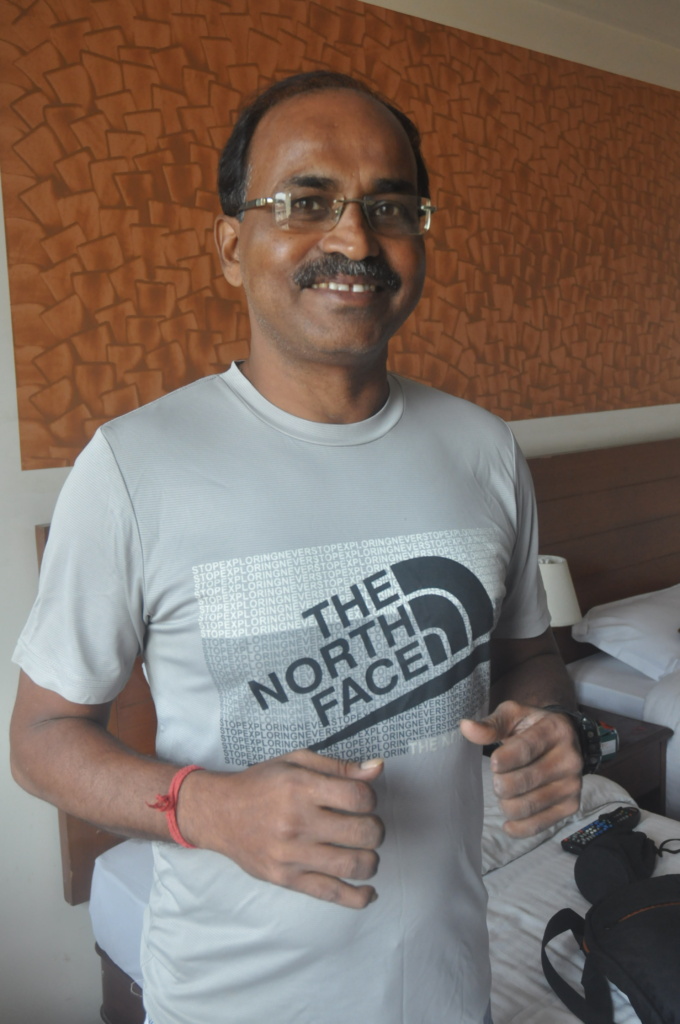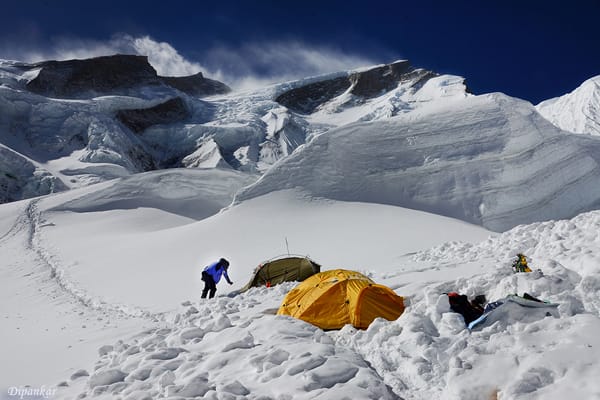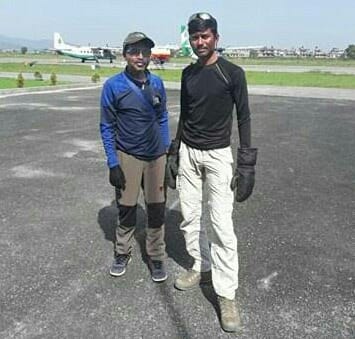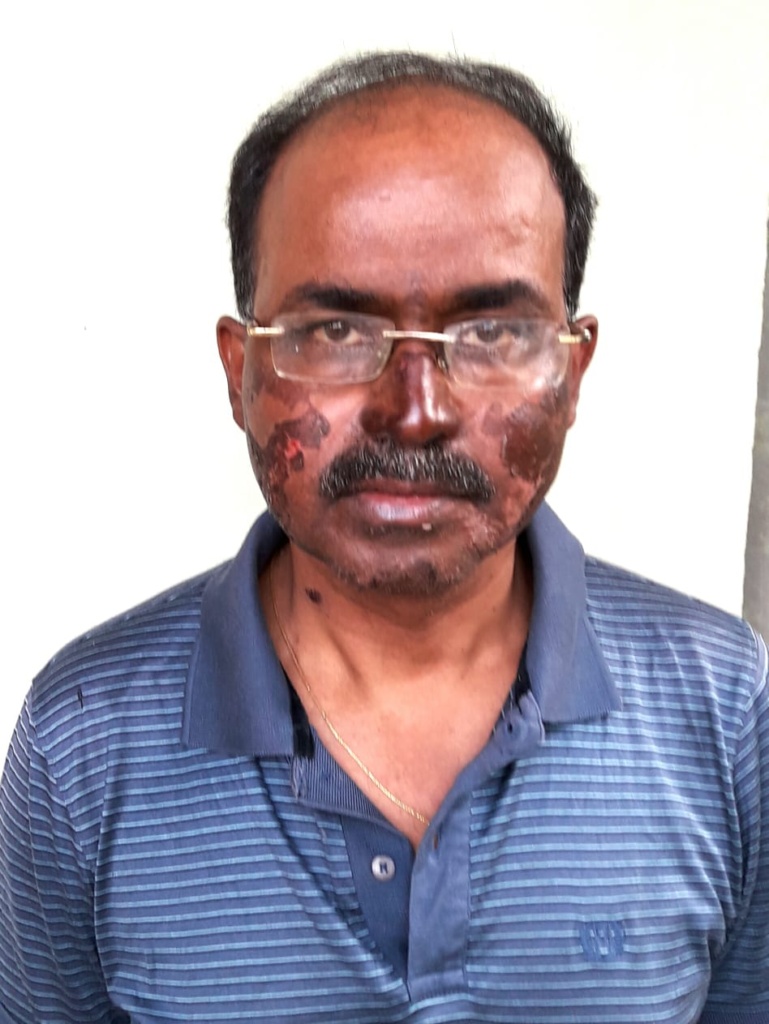Dipankar Ghosh pulled off an incredible rescue on Dhaulagiri in 2017. The Indian climber perished on Makalu two years later.

First published: https://www.rockandice.com/climbing-news/remembering-dipankar-ghosh-leading-indian-mountaineer/
Remembering Dipankar Ghosh, Leading Indian Mountaineer
Ghosh died on May 16 this year on Makalu.
A little over two years ago, Dipankar Ghosh, 53, had stood atop Dhaulagiri (8,167m). On his way down at around 8,000 meters, he saw a disoriented Indo-Tibetan Border Patrol (ITBP) team member, Biman Biswas, sitting in the snow. Over the next 12 hours, Ghosh put his life at risk to rescue Biswas. And though both got off the mountain alive, by the end of it, Ghosh had suffered amputations on seven fingers and a toe.
On May 16 this year, Ghosh summited Makalu (8,485m). It was his seventh successful summit of an 8,000er over the years. However, on his descent at around 8,200 meters, he lost communication with base camp. This time around, there would be no rescue, as India lost one of her most experienced mountaineers to the high Himalaya.
What stood out about Ghosh was his humility, terming the amputations a “small injury” despite all the he had endured. But nothing could keep him away from the mountains and by his own admission, he never married because he had already found his first love. There was a twinkle in his eye, like a hopeless romantic, each time he spoke about the mountains. And just a year and a half after that injury, he was back to claim another summit after climbing Cho Oyu in September 2018. What Ghosh will be most remembered for is his smile that seemed to embrace a relative stranger with its warmth in a matter of minutes. And of course, that epic rescue that few would have dared to attempt.

Having summited Dhaulagiri at 4.12pm on May 20, 2017, Ghosh was on his way down, when he noticed Biswas. He was exhausted and disoriented, snow blind and out of oxygen. His team members had abandoned him, as had others who were descending from the summit. And perhaps for good reason, since the weather was turning.
But Ghosh wasn’t walking past him. His Sherpa, Bir Kaji Tamang, insisted that he come down with him – he was simply asked to carry on.
It took a tremendous effort to get the jawan on his feet, before Ghosh short-roped him and led the way. After descending 800 metres, he came across a rappel section. In the fading light, the task was onerous, especially while dragging a man who was hardly himself. The summit camp at 7,350 metres was still a fair distance away.
“When I started out to rescue him, I didn’t think we both would suffer so much loss. But when we stopped that night, I knew we were in trouble. Otherwise, I was confident of getting him off the mountain,” Ghosh had said, when I met him in Kathmandu in the fall of last year.

The effort of making the summit had drained Ghosh as well. There was no way that he was convincing his partner to snap out of his daze and focus on the rappel. But neither was he abandoning him and walking away. The exposure was too much and Ghosh feared that there was a chance Biswas would fall to his death. The duo settled down near some rocks at 7,600 meters to wait out the night. Ghosh was well aware that he had just taken a call that would risk his very survival.
“I would snap in and out of it, each time dreaming of a sunrise in my subconscious mind. But I would only see stars and would gradually drift away again. It was dangerous to sleep; then again, I was dog-tired,” he had said.
The water had long run out; at midnight, his oxygen was over. However, they did survive the night and when the first light contested the darkness, Ghosh knew that it was imperative that they get going if they were to live any longer. When the jawan refused to cooperate, he unleashed a tirade in Bengali (a language, native to the state of West Bengal from where they both hail), which was quite unlike him, and reminded him that his family was waiting for him.
It seemed to have worked and the jawan seemed to cooperate there on. That evening, Ghosh had him down in the safety of camp. His was a selfless act, the concern for another life at those heights where it’s every man for himself. It then mattered little to him, that there was no word of gratitude from the ITBP camp in the months to follow.
“I faced a lot of loss physically because of this, but mentally, I’m stronger than I ever was before this. I have immense satisfaction in knowing that I saved the life of a man. This was more satisfying than actually reaching the summit,” he had said about the Dhaulagiri climb.

On returning to Kolkata, Ghosh had to undergo amputation on his fingers and a toe. For the next nine months, he was homebound for fear of catching infection. But the moment he recovered in spirit, Ghosh was up and about, taking on the smallest chore to bring his digits back to life. He played carrom to strengthen his fingers, donned gloves in his living room and fiddled with ropes to get used to life with amputated fingers. All in a bid to be back where he belonged. And the climb up Cho Oyu and Makalu speak volumes of that determination.
Ghosh sold computer parts for a living. He worked round the year and when he had enough money, he would head out to his next mountain. Even when he received sponsorship, there was “no scope for luxury”, since someone had put their faith in his abilities. He would organise photography exhibitions and add the money through sales to his climbing kitty. Yet, when the earthquake struck Nepal in 2015, he abandoned his attempt on Annapurna and instead joined rescue teams to lend a hand in any way that he could.
Of the 8,000ers, Ghosh had summited Everest (2011), Lhotse (2012), Kanchenjunga (2014), Manaslu (2016), Dhaulagiri (2017), Cho Oyu (2018) and Makalu (2019).
He wrote short stories in his free time and books that took him back to the mountains – climbs up Everest, Kanchenjunga, Lhotse and Dhaulagiri. Most were in the language he loved the most, Bengali. He promised to send me the one book he had written in English, though I’m going to have to go hunting for it now.
In 2013, Ghosh had gone to Makalu and turned back from 8,300 meters due to lack of enough rope. That was the end of the expedition, since a subsequent weather window didn’t arrive for another attempt. This year, he made it half way there.
Rest assured, he would have been content breathing his last in the embrace of his true love.